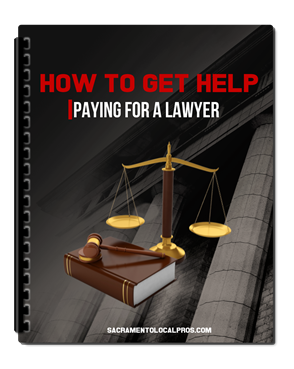Estate planning is crucial in ensuring that your assets are distributed according to your wishes after your passing.
Navigating the complexities of legal regulations and documentation can be challenging, making it vital to find an experienced estate planning lawyer who can provide guidance tailored to your unique situation.
With a vast array of options available, knowing how to identify the right legal professional can significantly ease the process and give you peace of mind for the future.
Here, we’ll share 10 tips for selecting the best estate planning lawyer to meet your needs.
1)) Seek Recommendations
Ask friends, family members, or colleagues who have gone through the estate planning process for recommendations on lawyers they trust and have had positive experiences with.
Tips for Seeking Recommendations:
- Consider Local Expertise: Focus on lawyers who are familiar with estate planning laws in your state, as regulations can vary significantly by location.
- Research Online Reviews: Check websites like Avvo or Martindale-Hubbell for client reviews and ratings of estate planning lawyers in your area.
- Utilize Professional Networks: Consult with financial advisors, accountants, or other professionals who may have established relationships with reputable estate planning lawyers.
- Join Online Forums: Participate in estate planning discussion groups or forums where members share their experiences and can provide lawyer recommendations.
- Interview a Few Candidates: Narrow down your options and meet with several lawyers to discuss their services and ensure they align with your needs and comfort level.
Finding the right estate planning lawyer doesn't have to be an overwhelming task.
By leveraging recommendations from trusted sources and conducting thorough research, you can identify a legal professional who meets your specific needs.
Remember, a knowledgeable and experienced lawyer will not only assist you in navigating the legal complexities but also provide reassurance that your estate is in capable hands.
Taking the time to choose wisely will lead to a more secure future for you and your loved ones.
2)) Research Online
Utilize online resources such as legal directories and review websites to research potential estate planning lawyers in your area. Look for positive reviews and feedback from past clients.
Tips for Researching Online:
- Utilize Legal Directories: Websites like FindLaw and Avvo can help you find qualified estate planning lawyers and provide essential information about their backgrounds and specialties.
- Check for Professional Associations: Look for lawyers who are members of professional organizations, such as the American Bar Association or the National Association of Estate Planners & Councils, which indicates a commitment to their field.
- Compare Fee Structures: Review the online profiles of potential lawyers to understand their fee structures, ensuring you choose someone whose services align with your budget.
- Examine Published Articles and Resources: Consider lawyers who share their expertise through blogs, articles, or webinars; this can highlight their knowledge and approach to estate planning.
- Look for Peer Reviews: Research if other legal professionals have reviewed or recommended the lawyers you are considering, as this can provide additional insight into their reputation and expertise.
Researching online is an essential step in finding the right estate planning lawyer who fits your needs.
By thoroughly evaluating potential candidates through legal directories, professional associations, and client reviews, you can gain valuable insights that help inform your decision.
This careful approach not only saves you time but also increases the likelihood of partnering with a capable lawyer who can effectively guide you through the intricacies of estate planning, giving you confidence that your future is secured.
3)) Check Credentials
Ensure that the lawyer you are considering has the necessary credentials and qualifications in estate planning law.
Look for certifications or memberships in relevant professional organizations.
Tips for Checking Credentials:
- Verify Educational Background: Look into the lawyer's educational qualifications, ensuring they have graduated from an accredited law school with a focus on estate planning or related fields.
- Check for State Bar Membership: Confirm that the lawyer is a member of the state bar association, which indicates they are licensed to practice law in your state and adhere to professional standards.
- Look for Special Certifications: Identify if the lawyer holds any specialized certifications, such as being a Certified Elder Law Attorney (CELA) or a Fellow of the American College of Trust and Estate Counsel (ACTEC).
- Review Disciplinary History: Research any disciplinary actions against the lawyer through your state bar association, as this can provide insights into their professional conduct and ethics.
- Assess Continuing Education: Consider whether the lawyer participates in ongoing education or training related to estate planning, showing their commitment to staying up-to-date with changes in laws and best practices.
Evaluating the credentials of an estate planning lawyer is crucial to ensuring that you receive the best possible guidance.
By carefully researching their educational background, state bar membership, and any specialized certifications, you can make a well-informed decision.
Additionally, considering their disciplinary history and commitment to continuing education will provide further assurance of their professionalism and expertise.
This thorough assessment helps you choose a lawyer who is not only qualified but also dedicated to representing your interests effectively.
4)) Experience Matters
Choose a lawyer with extensive experience in estate planning law. An experienced lawyer will be familiar with various aspects of estate planning and can provide you with valuable insights and guidance.
Tips for Considering Experience:
- Look for Specialization: Choose a lawyer who specializes in estate planning, as this focus will typically result in greater knowledge and experience in the specific nuances of the law.
- Evaluate Years of Practice: Aim for a lawyer with several years of experience in the field; their longevity may indicate a strong understanding of estate planning procedures and challenges.
- Ask About Case Types: Inquire about the types of cases the lawyer has handled, ensuring they have experience with situations similar to yours, such as wills, trusts, or probate matters.
- Request Client References: Seek references or testimonials from past clients to gauge the lawyer's effectiveness and approach in handling estate planning issues.
- Check for Continued Involvement: Investigate whether the lawyer engages in ongoing education or professional development, as this reflects their commitment to staying informed about evolving estate planning laws and practices.
Choosing an estate planning lawyer with substantial experience is essential to navigating the complexities of this area of law effectively.
A seasoned lawyer not only brings a wealth of knowledge but can also offer insights that are invaluable for making informed decisions about your estate.
By considering factors such as specialization, years in practice, and proven client success, you can ensure that you partner with an attorney who understands your unique needs and is equipped to provide tailored guidance.
This careful selection process strengthens your confidence in securing a solid plan for your future.
5)) Meet Potential Lawyers
Schedule consultations with a few potential estate planning lawyers to discuss your needs and assess their communication style, knowledge, and approach to handling your case.
Tips for Meeting Potential Lawyers:
- Prepare Questions in Advance: Write down specific questions regarding their experience, approach to estate planning, and fee structures to ensure all your concerns are addressed during the meeting.
- Assess Communication Style: Pay attention to how the lawyer communicates; they should listen actively and respond clearly, indicating they value your input and understand your needs.
- Evaluate Accessibility: Consider how easy it is to reach the lawyer; a good lawyer should be available to you for questions and updates throughout the estate planning process.
- Discuss Fees and Billing Practices: Clarify their fee structure during the consultation to avoid any surprises later. Understanding their billing methods will help you manage costs effectively.
- Trust Your Instincts: Reflect on your comfort level with the lawyer; trust and rapport are essential in ensuring a productive working relationship, so choose someone with whom you feel at ease.
Choosing the right estate planning lawyer involves more than just credentials; it’s also about finding a lawyer who aligns with your communication style and personal comfort.
Meeting potential lawyers allows you to evaluate their approach, availability, and transparency regarding fees.
This process ensures that you not only choose someone knowledgeable but also a professional with whom you can build a trusting relationship.
By taking the time to meet and assess various lawyers, you position yourself to make an informed choice that will support your estate planning needs effectively.
6)) Discuss Fees
Be transparent about fees from the beginning. Understand how the lawyer charges for their services and ask for a detailed breakdown of costs involved in the estate planning process.
Tips for Discussing Fees:
- Ask for an Upfront Estimate: Request a clear estimate of the total costs involved in your estate planning to avoid unexpected expenses down the line.
- Inquire About Hourly vs. Flat Fees: Understand if the lawyer charges by the hour or if they offer flat-fee services for specific tasks, as this can significantly affect your total cost.
- Clarify What’s Included: Make sure to ask what services are covered under the quoted fees. This includes document preparation, consultations, and any additional work that may arise.
- Discuss Payment Plans: If the costs are substantial, inquire about the possibility of installment payments or financing options to ease the financial burden.
- Review Additional Costs: Be aware of any potential additional costs that might arise, such as court fees, filing fees, or costs for additional consultations, to ensure complete transparency in your budgeting.
Understanding the fee structure and openly discussing costs with your estate planning lawyer is crucial for a successful partnership.
By obtaining an upfront estimate and clarifying all aspects of billing, you can eliminate surprises and ensure that your financial commitments align with your expectations.
A transparent conversation about fees not only fosters trust but also allows you to make informed decisions as you navigate the estate planning process.
Prioritizing these discussions will enhance your confidence in the financial aspects of securing your estate's future.
7)) Communication Is Key
Choose a lawyer who is responsive, communicative, and attentive to your needs.
Clear communication is essential in ensuring your wishes are accurately reflected in your estate plan.
Tips for Effective Communication with Your Lawyer:
- Set Clear Expectations: At the beginning of your relationship, discuss how frequently you would like updates on your case and the preferred methods of communication (email, phone calls, etc.).
- Be Honest and Direct: Share your needs, wishes, and concerns openly with your lawyer to ensure they fully understand your situation and can tailor their advice accordingly.
- Ask for Clarification: Don't hesitate to ask questions if something is unclear; a good lawyer should be willing to explain complex concepts understandably.
- Document Important Conversations: Keep a record of significant discussions and decisions made during your meetings to ensure you have a reliable reference point moving forward.
- Provide Feedback: Share your thoughts about the communication style and effectiveness of your lawyer. Constructive feedback can help enhance the working relationship and improve mutual understanding.
Effective communication with your estate planning lawyer is fundamental to achieving your goals.
By establishing clear expectations and fostering open dialogue, you ensure that your specific needs and wishes are understood and valued.
When both you and your lawyer engage in honest conversations, it not only streamlines the planning process but also builds a stronger, more collaborative relationship.
Prioritizing communication will lead to a more customized estate plan that accurately reflects your intentions and preferences.
8)) Trust Your Instincts
Pay attention to how comfortable you feel with a particular lawyer during your initial meetings. Trust your instincts when deciding if they are the right fit for you.
Tips for Trusting Your Instincts When Choosing a Lawyer:
- Reflect on Your Initial Impressions: After your first meeting, take a moment to consider how you felt about the lawyer. Were they approachable and understanding? Your gut feelings can offer valuable insights.
- Assess Comfort Level: Pay attention to whether you felt comfortable discussing personal matters with the lawyer. Comfort in sharing sensitive information is vital for effective estate planning.
- Evaluate Communication Style: Notice how the lawyer communicates. Did they actively listen and validate your concerns? A lawyer’s communication style should resonate with your preferences and needs.
- Consider Their Attitude: Take into account the lawyer's demeanor. A positive, respectful attitude can enhance trust and foster a supportive relationship.
- Trust Your Overall Gut Reaction: If something feels off or you continue to have reservations about a lawyer, trust that instinct. It’s essential to feel confident in your choice as you navigate estate planning.
Trusting your instincts during the selection process for an estate planning lawyer is crucial for your peace of mind.
By reflecting on your initial impressions and evaluating your comfort level, you can better gauge whether a potential lawyer aligns with your needs.
A strong sense of trust not only enhances the overall partnership but ensures that you can freely communicate your aspirations and concerns.
Choosing a lawyer who resonates with you on a personal level will lead to a more effective and fulfilling estate planning experience.
9)) Review Sample Documents
Ask potential lawyers for sample documents they have prepared for previous clients to assess their attention to detail and expertise in drafting comprehensive estate plans.
Tips for Reviewing Sample Documents from Lawyers:
- Look for Clarity and Organization: Ensure that the documents are clear and well-structured, making it easy to understand the intentions behind the provisions laid out.
- Check for Customization: Evaluate whether the sample documents reflect the specific needs and situations of clients, indicating the lawyer's ability to tailor estate plans effectively.
- Assess Legal Language: Note the level of legal terminology used; documents should balance professional language with accessibility, ensuring that complex terms are explained or simplified.
- Review Completeness: Confirm that the samples cover all necessary aspects of an estate plan, including wills, trusts, powers of attorney, and healthcare directives.
- Request Explanations: Don’t hesitate to ask the lawyer about specific sections of the sample documents. Their ability to explain the rationale and choices made will provide further insight into their expertise.
Reviewing sample documents is an important step in selecting the right estate planning lawyer.
By examining the clarity, organization, and level of customization in their work, you can gain valuable insight into their expertise and approach to crafting estate plans.
This process also allows you to assess how well they balance professional legal language with accessibility, ensuring you can understand your documents.
Asking questions about specific sections further deepens your understanding and helps clarify the lawyer's thought process and attention to detail.
A thorough review of sample documents equips you with the confidence needed to choose a lawyer who is not only skilled but also attuned to your individual needs.
10)) Get It In Writing
Once you have found a suitable estate planning lawyer, make sure all agreements regarding fees, timelines, and services provided are documented in writing to avoid any misunderstandings later on.
Tips for Getting Agreements in Writing with Your Lawyer:
- Clarify Fee Structures: Ensure you understand how the lawyer charges for their services, whether it's hourly, flat fees, or contingency fees, and have this specified in your written agreement.
- Outline Services Provided: List the specific services the lawyer will provide to avoid any ambiguity about what is included in your agreement.
- Set Timelines: Document expected timelines for key milestones in the estate planning process, holding the lawyer accountable for the timely delivery of services.
- Include Communication Expectations: Specify how and when you will communicate with your lawyer, including response times for emails or calls, to foster effective collaboration.
- Review and Sign: Before commencing any work, carefully review the written agreement with your lawyer to ensure that all details are accurate and satisfactory before signing.
Having agreements documented in writing is essential for establishing a clear understanding between you and your estate planning lawyer.
This practice not only protects both parties by outlining fees, services, and timelines but also helps to prevent any potential misunderstandings that could arise later.
By ensuring that communication expectations are included, you set the stage for a collaborative and transparent relationship.
Reviewing everything before signing ensures that all details align with your expectations, providing you with confidence as you embark on the estate planning process.
Conclusion
Selecting the right estate planning lawyer is a vital step towards securing your legacy and ensuring your wishes are honored after you’re gone.
By employing the tips outlined above, you can confidently navigate the selection process and connect with a legal professional who aligns with your unique needs and values.
This decision is not just about finding a lawyer; it's about establishing a partnership that will help guide you through one of life's most significant responsibilities.
Take the time to research, communicate openly, and choose someone who makes you feel at ease, as this will lead to a smoother estate planning experience and the peace of mind you deserve.
Related Articles and Guides:
- How To Choose An Estate Planning Lawyer
- How To Negotiate The Best Fee For An Estate Planning Lawyer
- 10 Tips To Help You Determine Whether To Fire And Replace An Estate Planning Lawyer
Download Our Free E-book!







